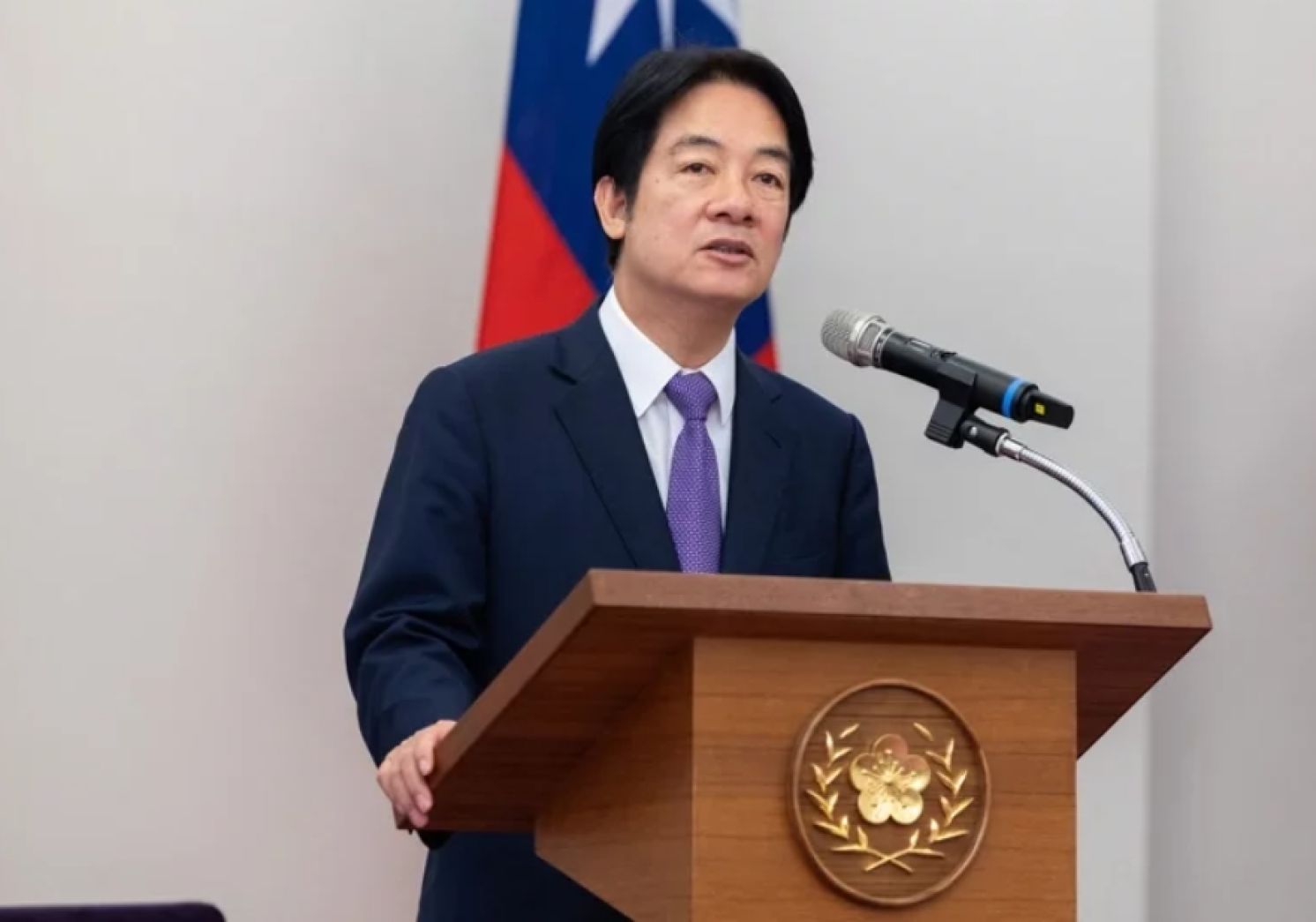
Lai Urges China to Respect Democratically Elected, Legitimate Government Entrusted by Taiwanese
Comprehensive Report by Taiwan Weekly
On April 24, President-elect William Lai, in his capacity as the Democratic Progressive Party (DPP) chairman, for the first time proposed "constructive dialogue led by ruling parties on both sides of the strait." The next day, during a press conference announcing national security personnel appointments, Mr. Lai reiterated his call to the mainland stating, "China needs to have confidence and be willing to engage with the democratically elected legitimate government entrusted by the people of Taiwan. This is the right path for cross-strait exchanges."
Following Mr. Lai's call to the mainland, Chairman Wang Huning of the Chinese People's Political Consultative Conference (CPPCC) met with visiting Kuomintang (KMT) legislators in Beijing on April 27. Mr. Wang stated: "We are all Chinese, belonging to the Chinese nation. We are one family and should visit each other more often, becoming closer and closer."
In his statement, Mr. Wang mentioned Chinese President Xi Jinping's remarks during his meeting with former President Ma Ying-jeou, which outlined the direction for further cross-strait exchanges and cooperation, emphasizing adherence to the 1992 Consensus, “One China”, opposition to Taiwan independence activities and external interference, and joint efforts for the well-being of compatriots, peace in the Taiwan Strait, and national rejuvenation.
Mr. Lai has made two consecutive appeals to the mainland. If China continues to refuse engagement with Taiwan's democratically elected legitimate government and instead opts for exchanges based on conditions set by the opposition, then it will not gain the trust and support of the people. Moreover, this approach may not be beneficial for China in the long run and will not contribute positively to cross-strait peace and development.
Mr. Lai recalled his public statement during his visit to the mainland as the mayor of Tainan in 2015, emphasizing the need for confident exchanges between the two sides to enhance mutual understanding, peace, and the well-being of people on both sides. He reiterated that this stance remains unchanged.
As a responsible member of the region, Taiwan collaborates with the international community to maintain regional peace, stability, and prosperity. Taiwan's goodwill towards the international community, including China, is evident, and the Taiwanese people are eager for peaceful cross-strait development.
Mr. Lai expressed his hope that China will have the confidence and willingness to engage with Taiwan's democratically elected legitimate government, as this is the right path for cross-strait exchanges. Failure to engage with Taiwan's legitimate government, instead opting for exchanges based on opposition conditions, will not earn the trust and support of the people.
Insiders within the ruling DPP have stated that since their party has garnered support from the majority of the people, the party must consider the issues and concerns that matter to these people. Will the DPP expand its discourse and convey this message across different regions in the future? They noted that while this is the general direction, the detailed execution methods still need to be discussed. The key is that this represents an important indicator of goodwill and willingness to engage in dialogue from the party's chairman.
Meanwhile, Chiu Chui-cheng, who is set to become minister of the Mainland Affairs Council, emphasized the importance of the "two realities" for the mainland: recognizing the objective fact that the Republic of China is a sovereign state and acknowledging the Taiwanese people's steadfast commitment to democratic values and way of life. He hopes that the mainland can learn from Taiwan's democratic experience, refrain from completely negating Taiwan, and respect Taiwan's way of life.
Executive Director Hsiao Hsu-tsen of the Ma Ying-jeou Foundation believes that cross-strait exchanges should not be limited by party lines, whether ruling or opposition. Moreover, considering that the opposition party has gained a majority of seats in the Legislative Yuan this time, and Mr. Lai garnered only 40 percent of the presidential vote, it should not be presumed that discussions can only occur with the ruling party. Regardless of whether it was during the presidencies of Lee Teng-hui or Ma, cross-strait negotiations were based on a "political foundation," not a "political precondition," and these should not be confused or distorted.
Mr. Hsiao suggested that during Mr. Ma’s visit to mainland China in early April, Mr. Xi’s discourse on the Chinese nation, which emphasized that both sides are Chinese and can discuss anything, could be acknowledged. According to Mr. Hsiao, people in Taiwan can also identify with the Chinese nation, and Mr. Lai can express his stance on this matter. Even if Mr. Lai does not accept the 1992 Consensus, he should return to the R.O.C. Constitution and the Act Governing Cross-Strait Relations. At the very least, Taiwan and the mainland should not be described as two separate countries; there should still be a foundation for cross-strait dialogue.
According to KMT Legislator Lai Shih-pao, under KMT governance from 2008 to 2016, cross-strait relations maintained a constructive dialogue. However, the 1992 Consensus and the "One China, Respective Interpretations" framework have been stigmatized by the Tsai administration, leaving no basis for dialogue. Without this foundation, extending an olive branch is merely empty talk. Mr. Lai refuses to accept the "One China, with respective interpretations" framework of the 1992 Consensus and is unwilling to abandon the DPP’s pro-independence platform. He fails to propose any stance acceptable to the mainland. Given the mainland's opposition to Taiwan independence, how can communication be achieved?
Taiwan People’s Party (TPP) Legislator Chang Ching-kai stated that if Mr. Lai’s inaugural address on May 20 fails to show goodwill, initiating a "constructive dialogue between the ruling parties on both sides of the strait" will undoubtedly remain empty rhetoric. He suggests that the DPP administration should first demonstrate goodwill by immediately announcing the opening of group tours to the mainland.